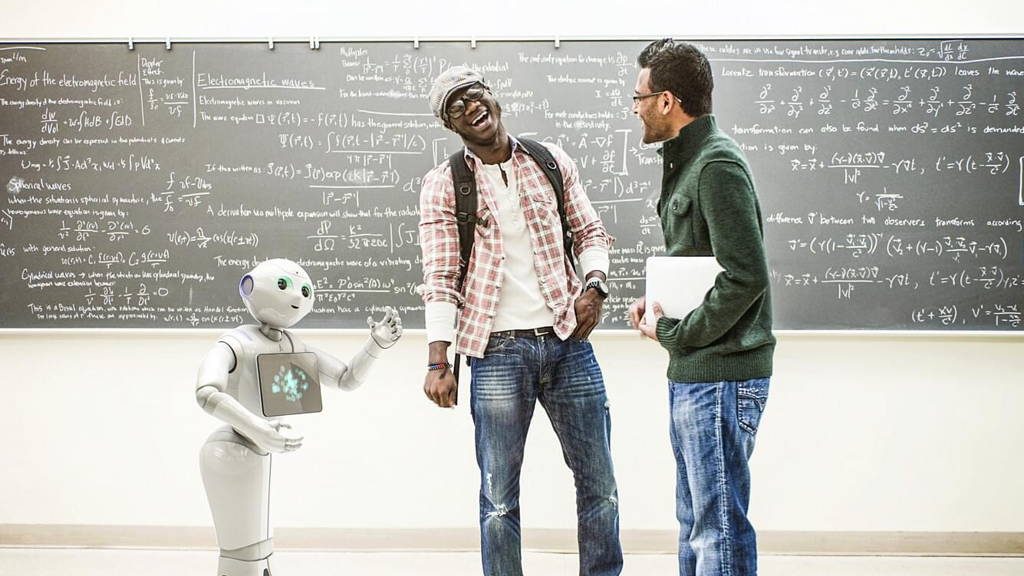With the help of Softbank’s humanoid robot Pepper and IBM Bluemix Watson Cognitive Services, the researchers want to study health information exchange through a state-of-the-art human-robot interaction system. For this, Ryerson and McMaster will use Softbank’s humanoid robot Pepper and IBM Bluemix Watson Cognitive Services to study health information exchange.
Through the project, the universities hope to develop and analyze physical and virtual human-robot interactions, which can also lead to insights on how to better understand patient behavior. The project itself is a collaboration between theree researchers:
“We see this as the initiation of an ongoing collaborative university and industry research program to develop and test applications of embodied AI, a research program that is well-positioned to integrate and apply emerging improvements in machine learning and social robotics innovations,” said Harris Smith.
“Pepper will help us highlight some very important aspects and motives of human behaviour and communication,” Zeller adds, while Hermenio Lima is excited about the opportunity to “potentially transform patient engagement in a clinical setting and ultimately improve healthcare outcomes by adapting to clients’ communications needs.”
At Ryerson, Pepper was funded by the Co-lab in the Faculty of Communication and Design. FCAD's Co-lab provides strategic leadership, technological support and acquisitions of technologies that are shaping the future of communications.
“We see this as the initiation of an ongoing collaborative university and industry research program to develop and test applications of embodied AI, a research program that is well-positioned to integrate and apply emerging improvements in machine learning and social robotics innovations,” said Harris Smith.
Through the project, the universities hope to develop and analyze physical and virtual human-robot interactions, which can also lead to insights on how to better understand patient behavior. The project itself is a collaboration between theree researchers:
- David Harris Smith, professor in the Department of Communication Studies and Multimedia at McMaster University
- Frauke Zeller, professor in the School of Professional Communication at Ryerson University
- Hermenio Lima, a dermatologist and professor of medicine at McMaster’s Michael G. DeGroote School of Medicine.
Analysing robot-human interaction
The research project involves the development and analysis of physical and virtual human-robot interactions, and has the capability to improve healthcare outcomes by helping healthcare professionals better understand patients’ behaviour. Zeller and Harris Smith have previously worked together on hitchBOT, the friendly hitchhiking robot that travelled across Canada and has since found its new home in the Science and Technology Museum in Ottawa.“We see this as the initiation of an ongoing collaborative university and industry research program to develop and test applications of embodied AI, a research program that is well-positioned to integrate and apply emerging improvements in machine learning and social robotics innovations,” said Harris Smith.
Highlight aspects of human behaviour
Designed to be used in professional environments, Pepper is a humanoid robot that can interact with people, ‘read’ emotions, learn, move and adapt to its environment, and even recharge on its own. Pepper is able to perform facial recognition and develop individualized relationships when it interacts with people.“Pepper will help us highlight some very important aspects and motives of human behaviour and communication,” Zeller adds, while Hermenio Lima is excited about the opportunity to “potentially transform patient engagement in a clinical setting and ultimately improve healthcare outcomes by adapting to clients’ communications needs.”
At Ryerson, Pepper was funded by the Co-lab in the Faculty of Communication and Design. FCAD's Co-lab provides strategic leadership, technological support and acquisitions of technologies that are shaping the future of communications.
Integration of technologies
The integration of IBM Watson cognitive computing services with the state-of-the-art social robot Pepper, offers a rich source of research potential for the projects at Ryerson and McMaster. This integration is also supported by IBM Canada and SOSCIP by providing the project access to high performance research computing resources and staff in Ontario.“We see this as the initiation of an ongoing collaborative university and industry research program to develop and test applications of embodied AI, a research program that is well-positioned to integrate and apply emerging improvements in machine learning and social robotics innovations,” said Harris Smith.






